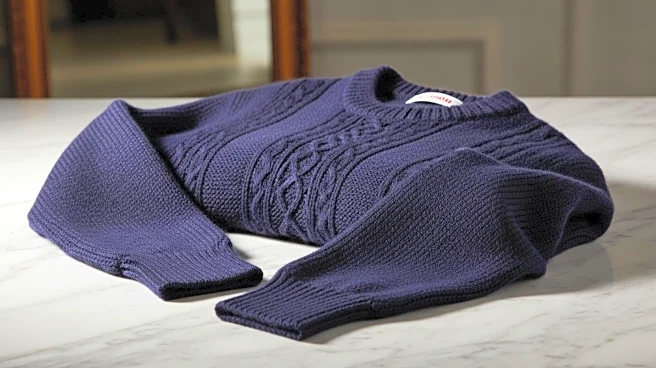What's Happening?
Italian fashion house Brunello Cucinelli has reported a net profit of 76.7 million euros for the first half of the financial year, marking a 16% increase compared to the previous year. The company also announced a revenue of 684.1 million euros, reflecting a 10.2% growth. Founder Brunello Cucinelli attributed the success to the company's commitment to valuing manual labor and maintaining respect for the moral and economic dignity of people. The positive financial results come amidst broader challenges in the luxury sector, including trade tensions and geopolitical uncertainties.
Why It's Important?
The growth in Brunello Cucinelli's net profit is significant as it highlights resilience in the luxury fashion industry despite ongoing global economic challenges. The company's success may influence other luxury brands to adopt similar business practices that emphasize ethical labor and human dignity. This development could also impact investor confidence in the luxury sector, potentially leading to increased investments and expansion opportunities. The positive financial performance may encourage other companies to focus on sustainable and ethical business models.
What's Next?
Brunello Cucinelli's continued focus on ethical business practices and manual labor may set a precedent for other luxury brands. The company might explore further expansion opportunities or collaborations to capitalize on its current success. Stakeholders in the luxury sector will likely monitor the company's strategies closely, considering potential adaptations to their own business models. Additionally, the broader industry may see shifts towards more sustainable and ethical practices as a result of Brunello Cucinelli's achievements.
Beyond the Headlines
The emphasis on ethical labor and human dignity in Brunello Cucinelli's business model could lead to long-term shifts in the luxury fashion industry. As consumers increasingly demand transparency and ethical practices, companies may need to adapt to maintain competitiveness. This trend could foster a cultural shift towards valuing craftsmanship and sustainable practices, influencing both consumer behavior and industry standards.










